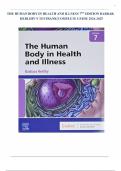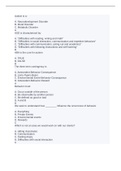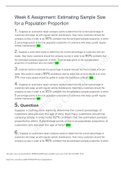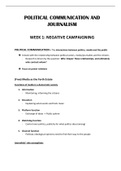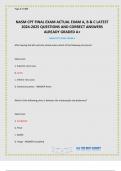Exam (elaborations)
Test Bank For Social Research A Tool for the Human Services 9th Edition by Duane R. Monette
- Module
- Social Research - Test Bank
- Institution
- Social Research - Test Bank
Monette/ Sullivan/ DeJong/Hilton, Applied Social Research: A Tool for the Human Services, 9e Test Bank Chapter 3: Ethical Issues in Social Research Multiple Choice 1. Ethics have to do with all of the following EXCEPT: a. efficiency and practicality. b. proper and improper behavior. c. moral ...
[Show more]




